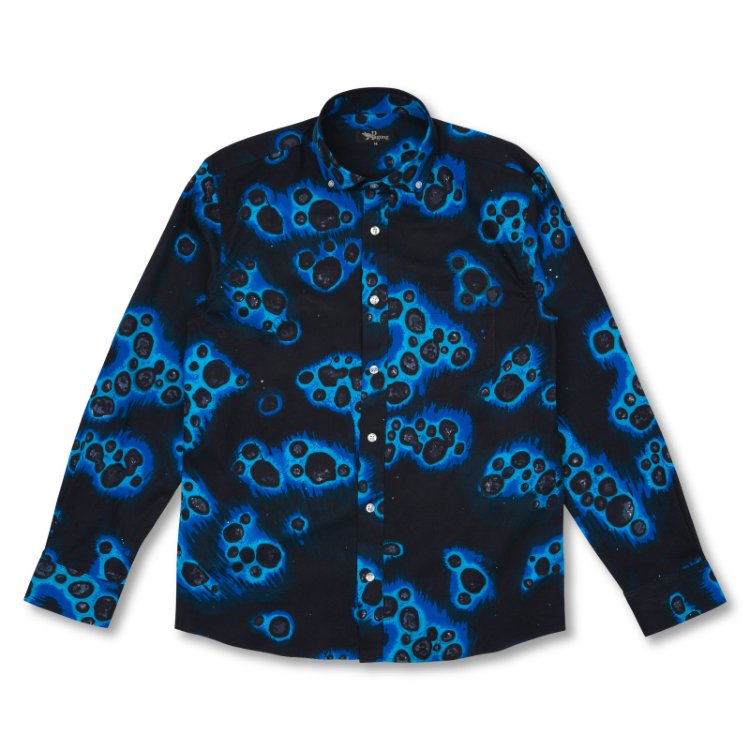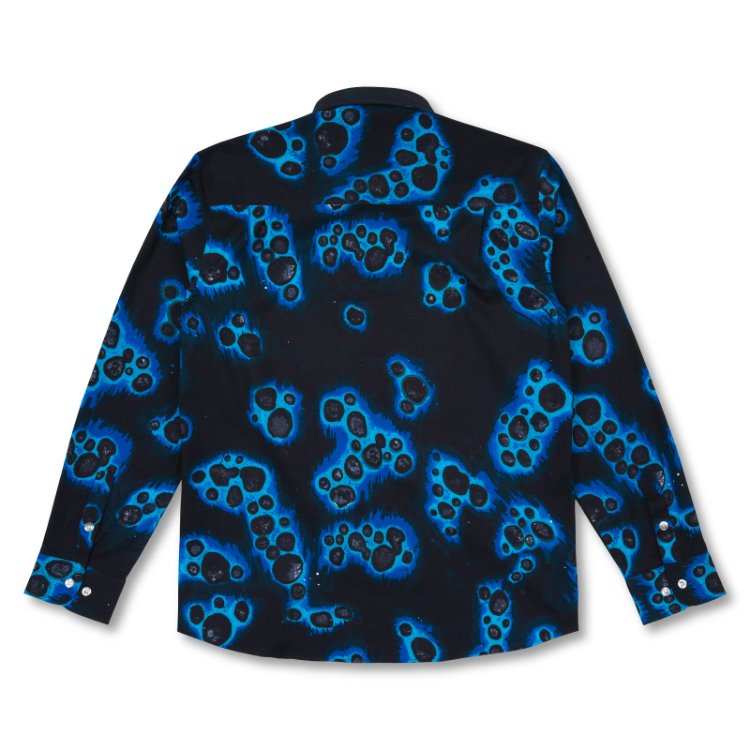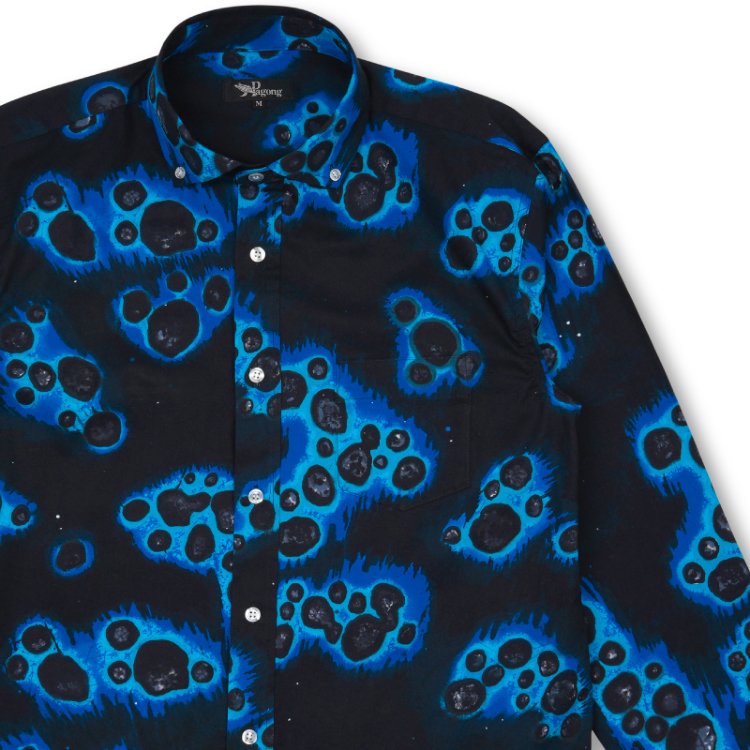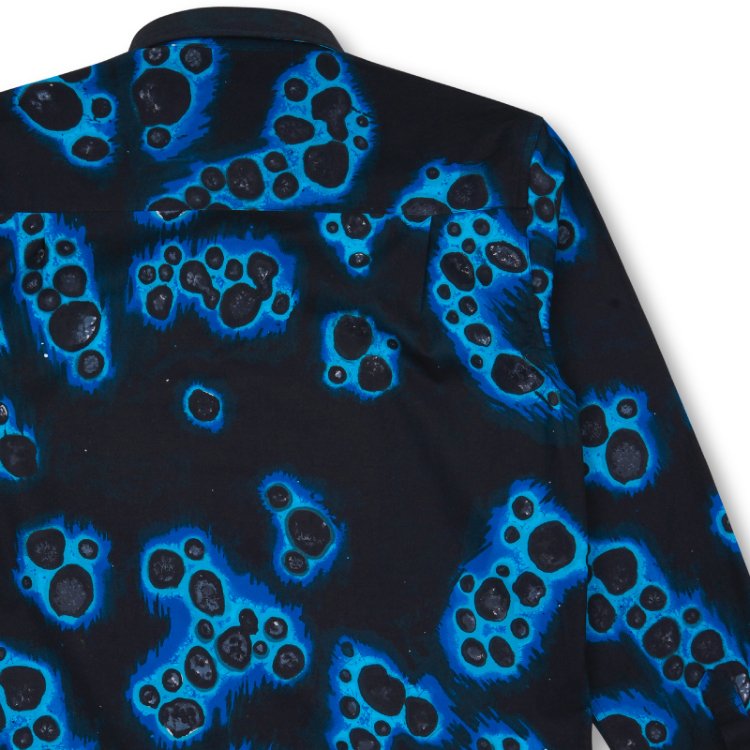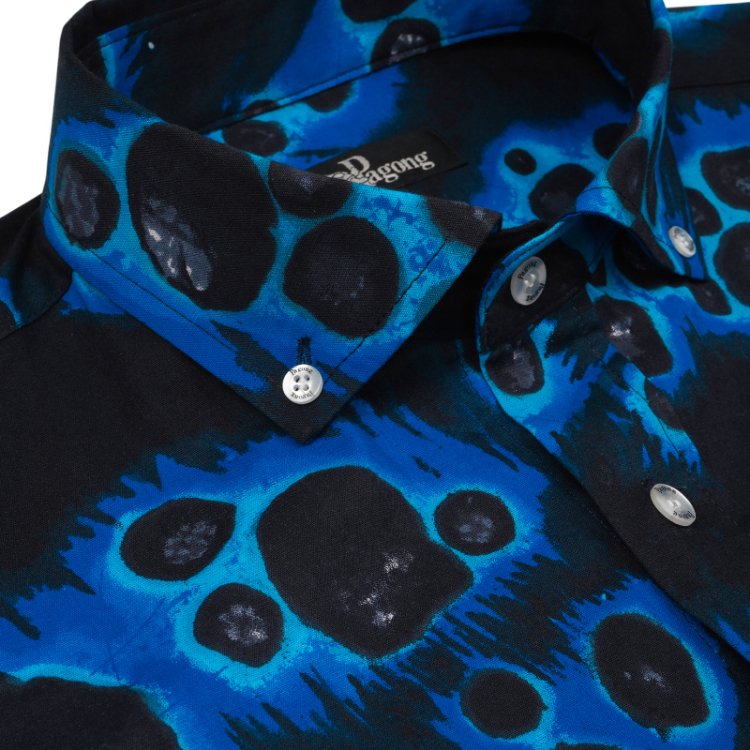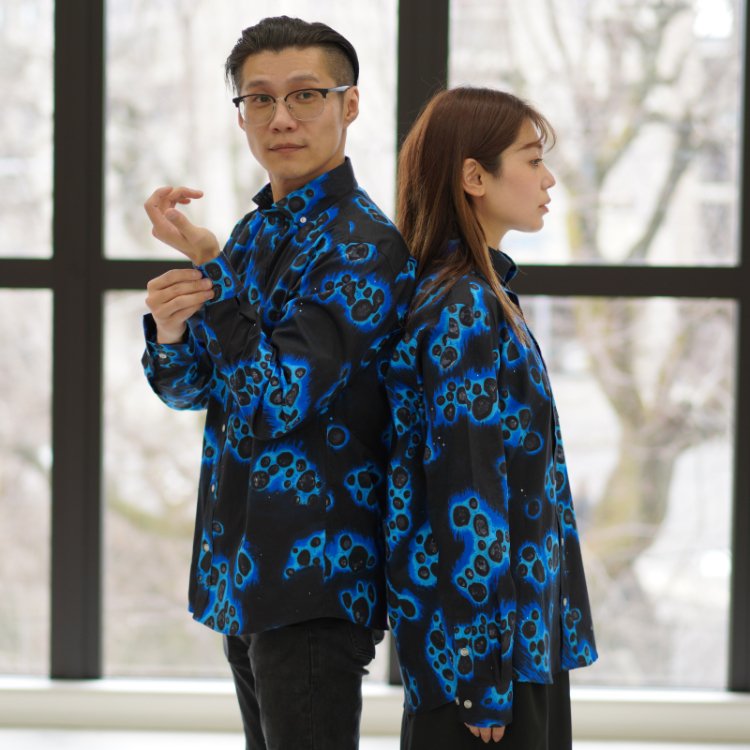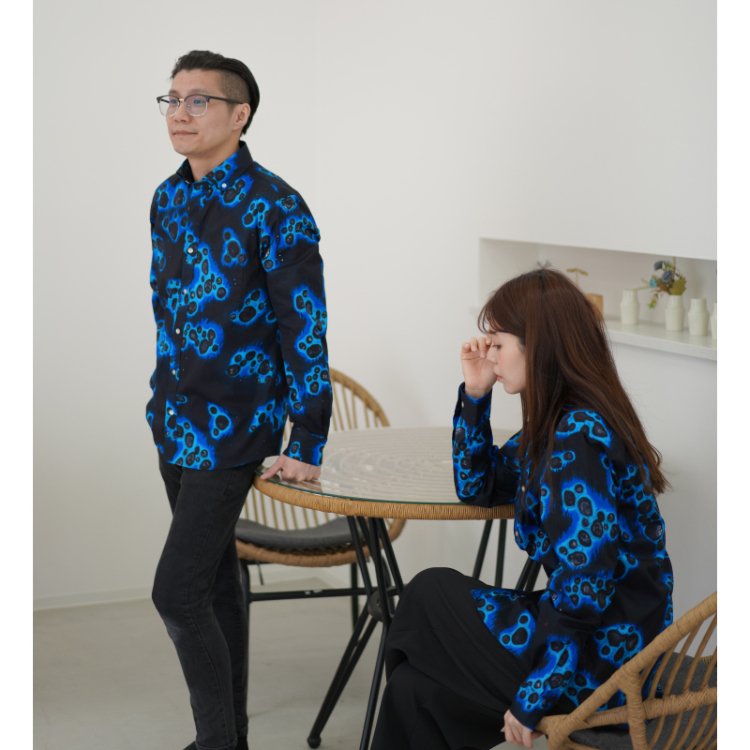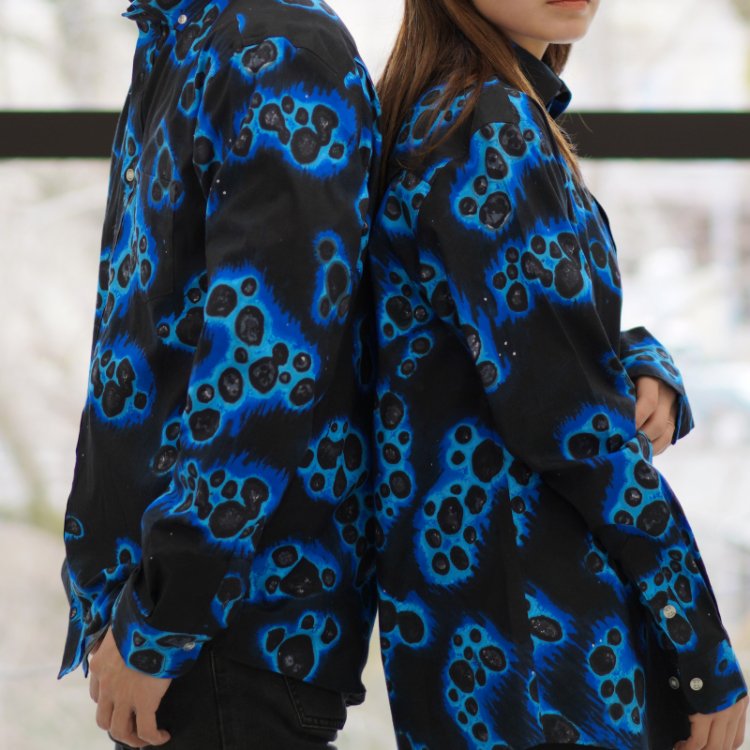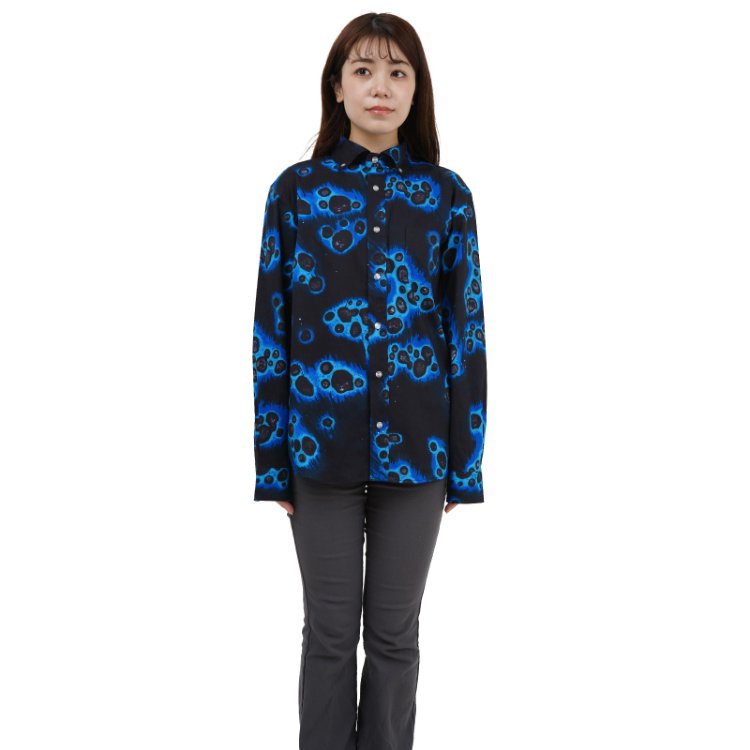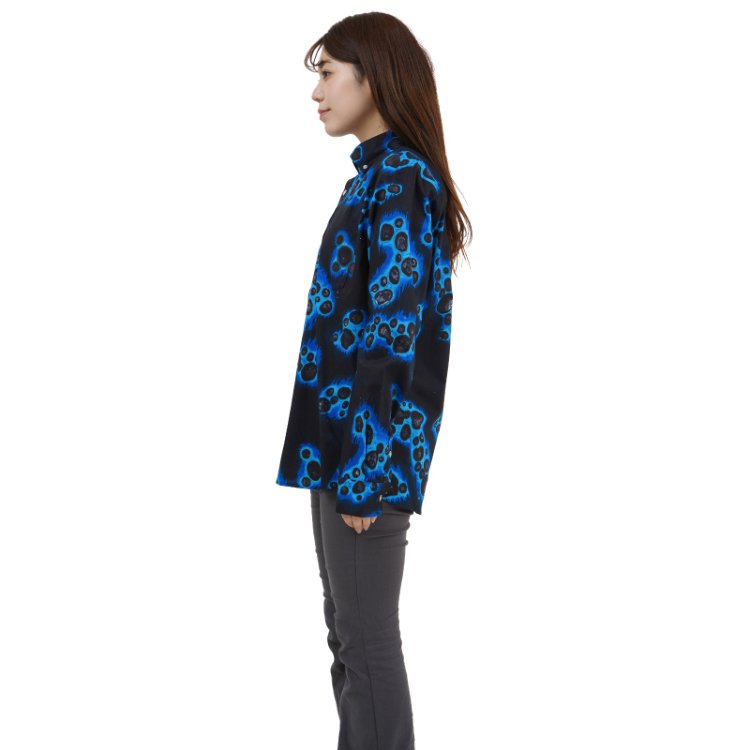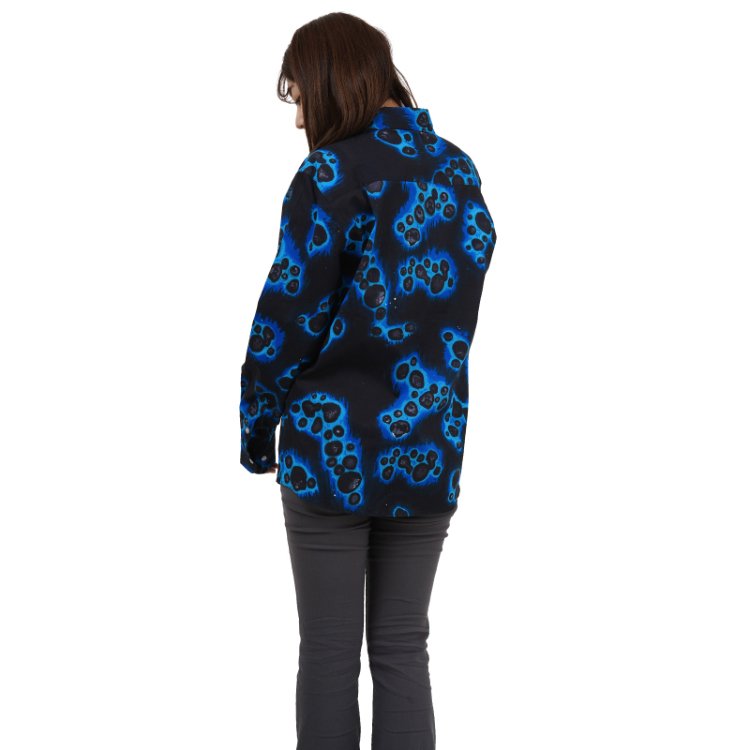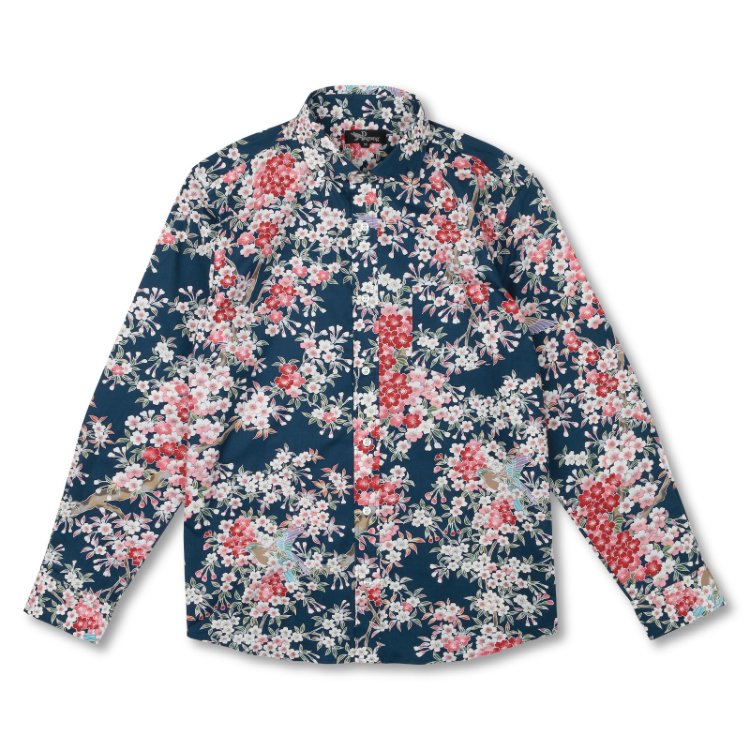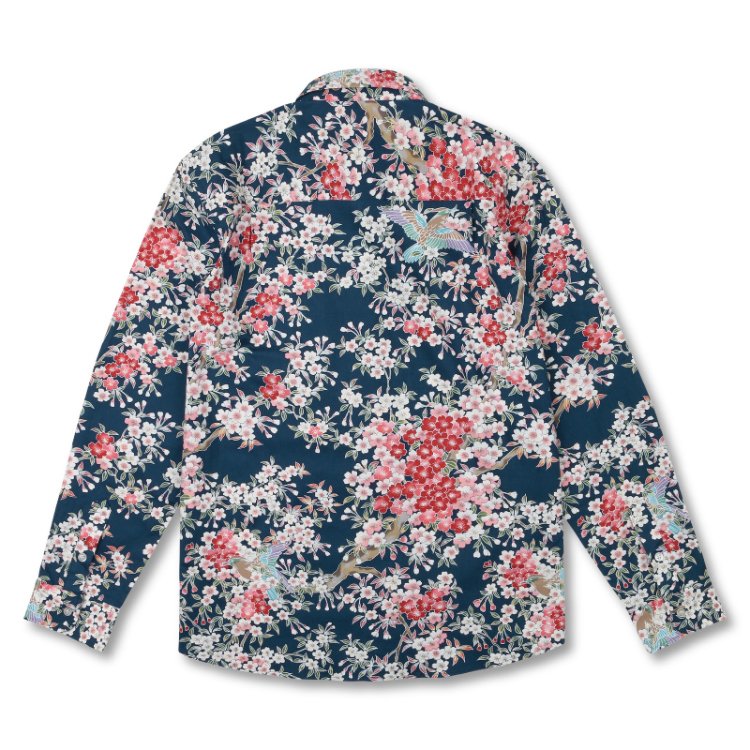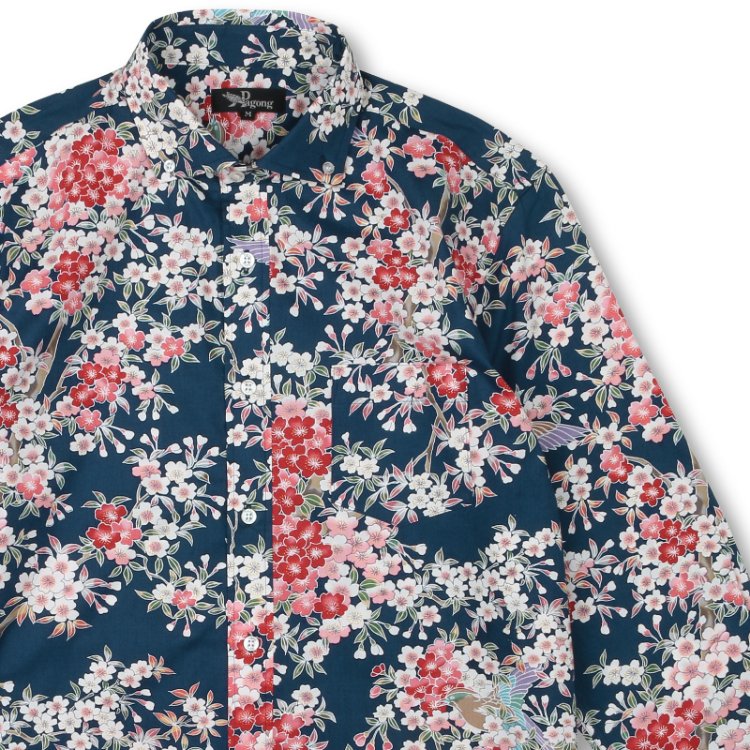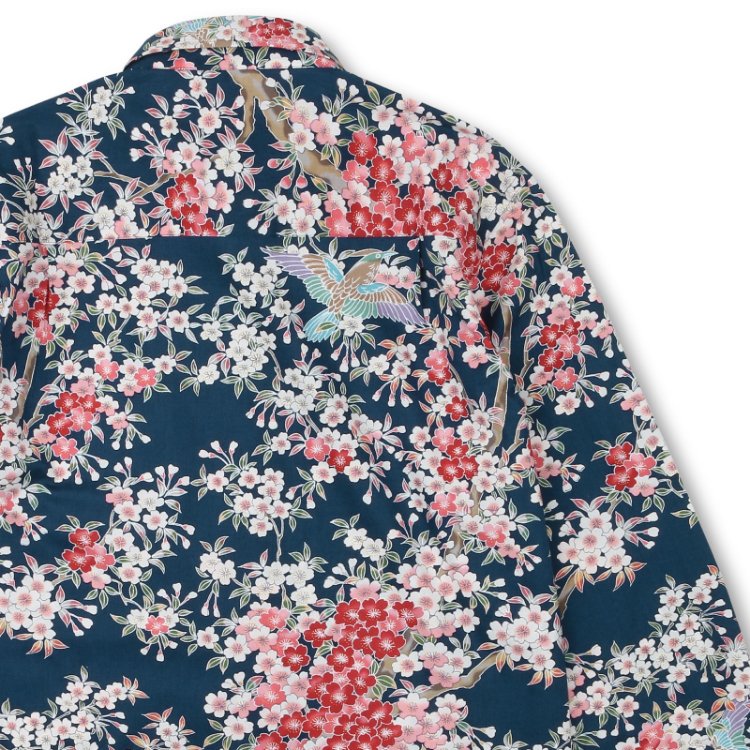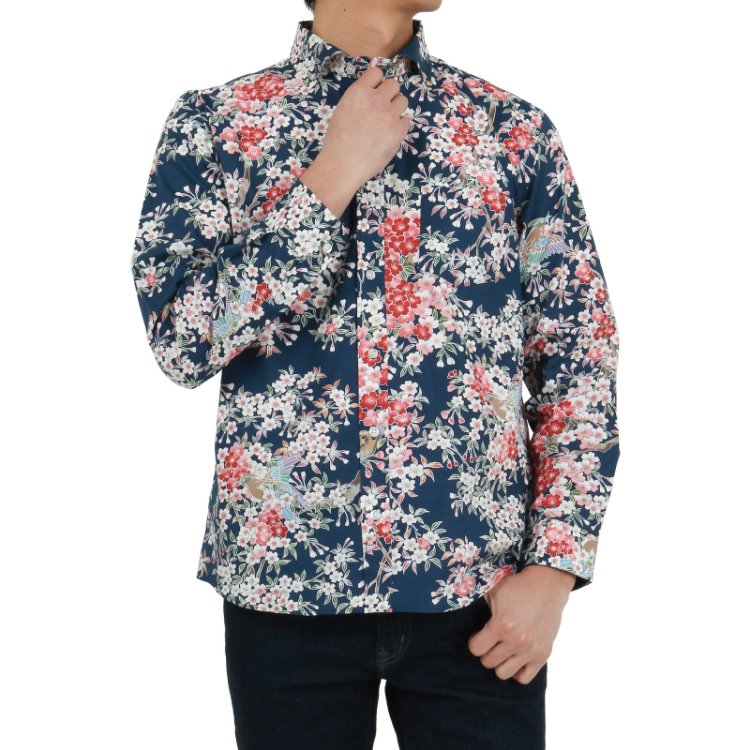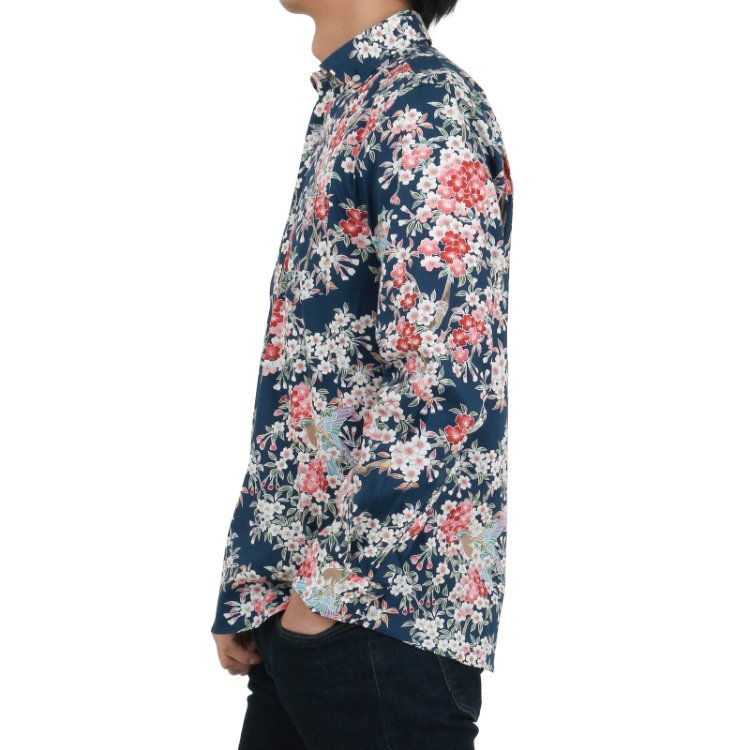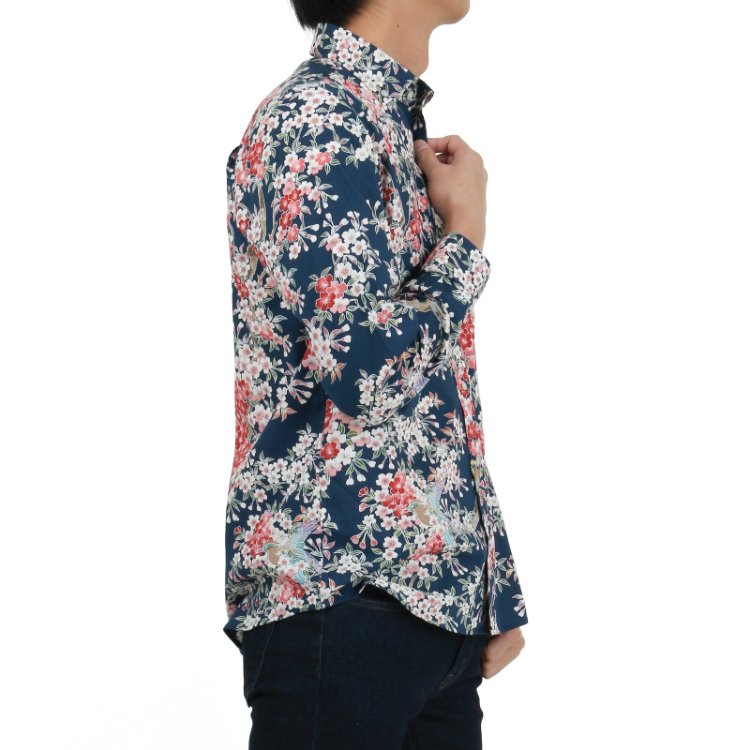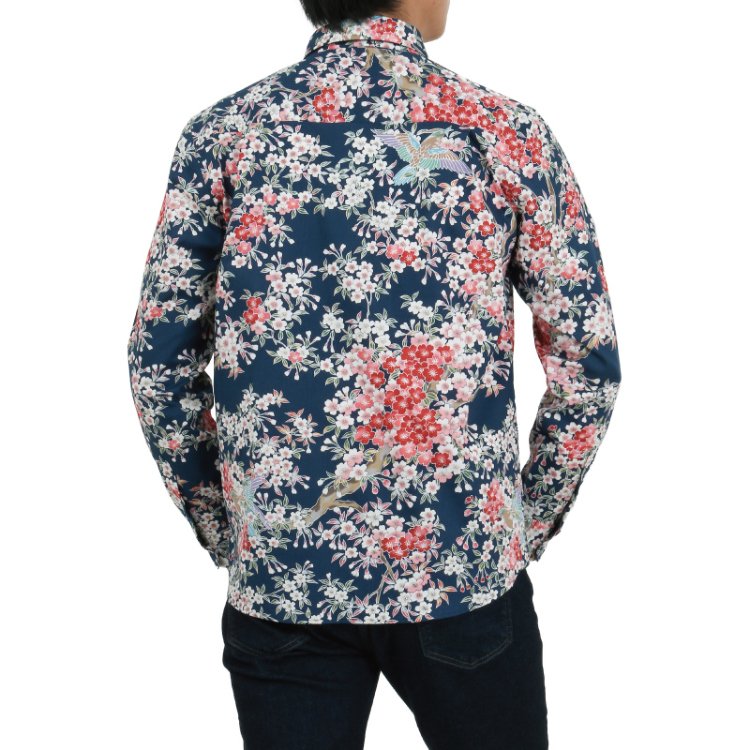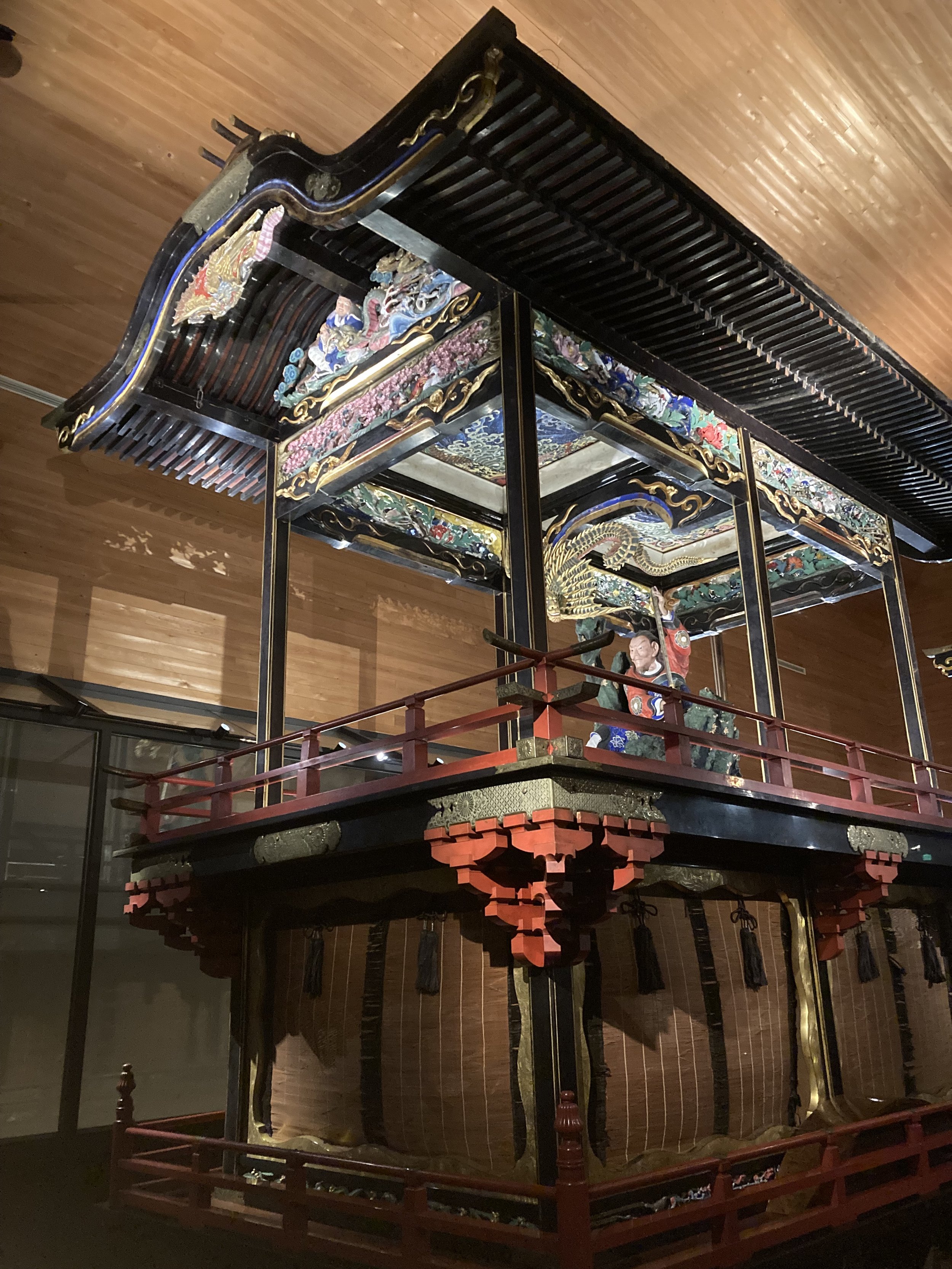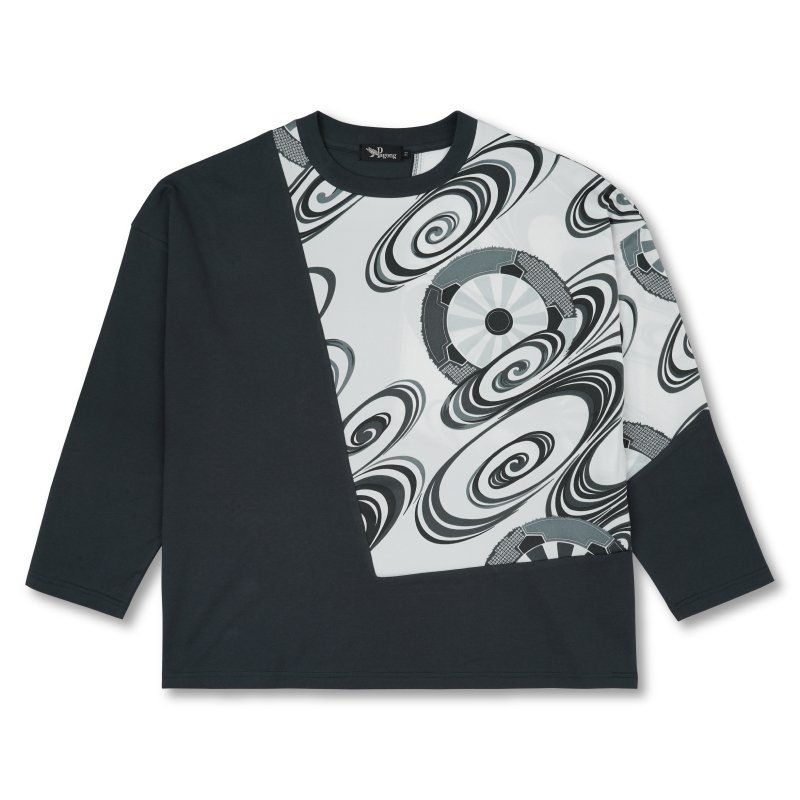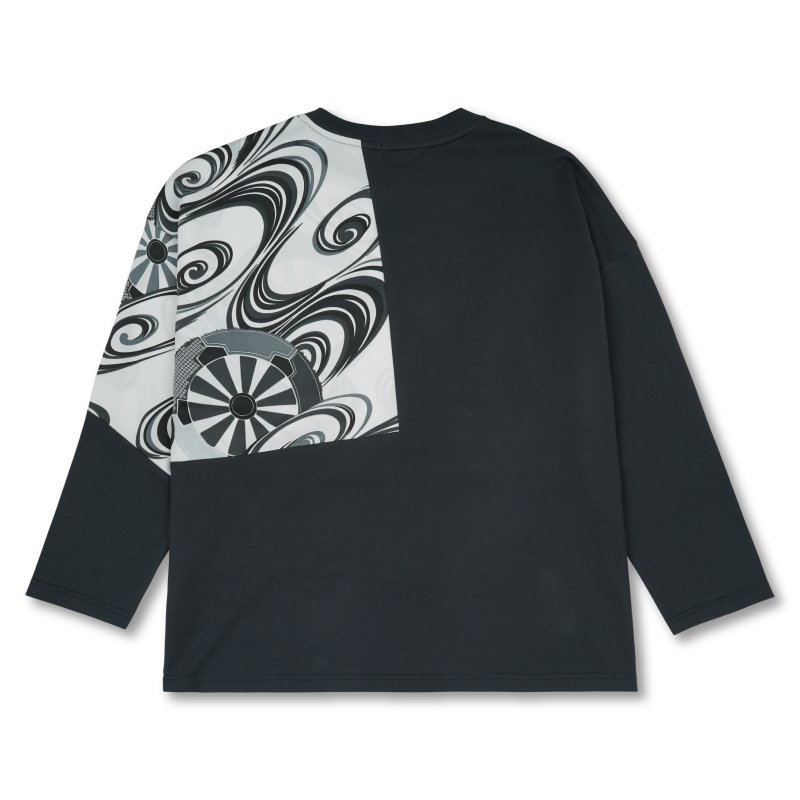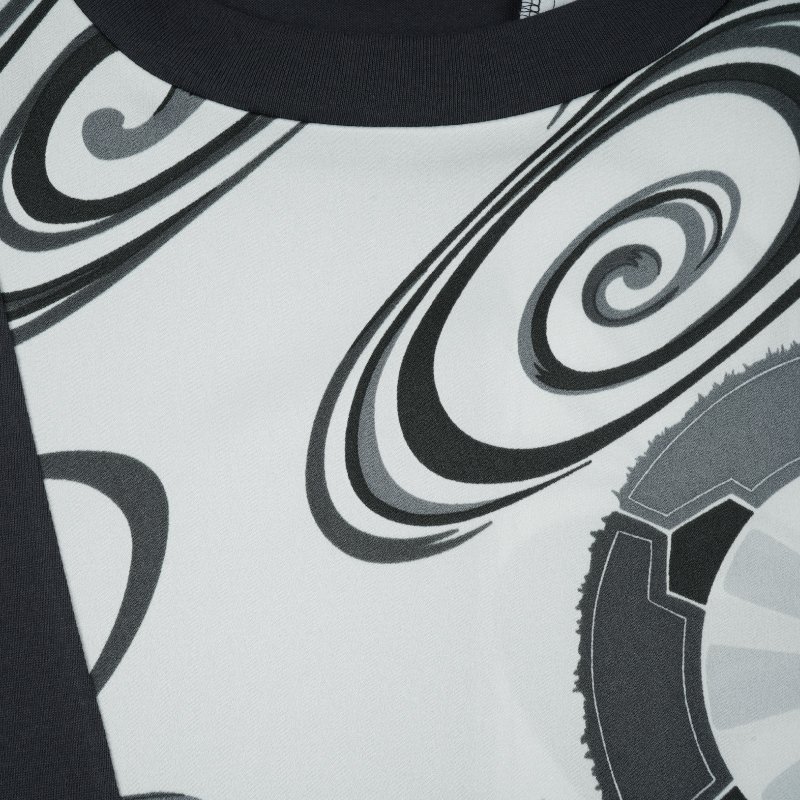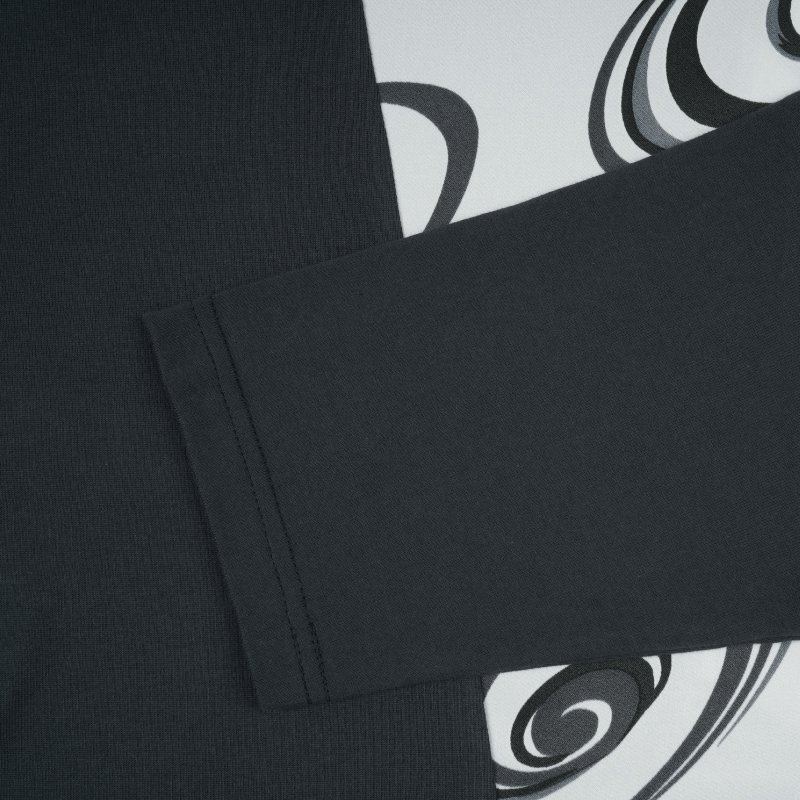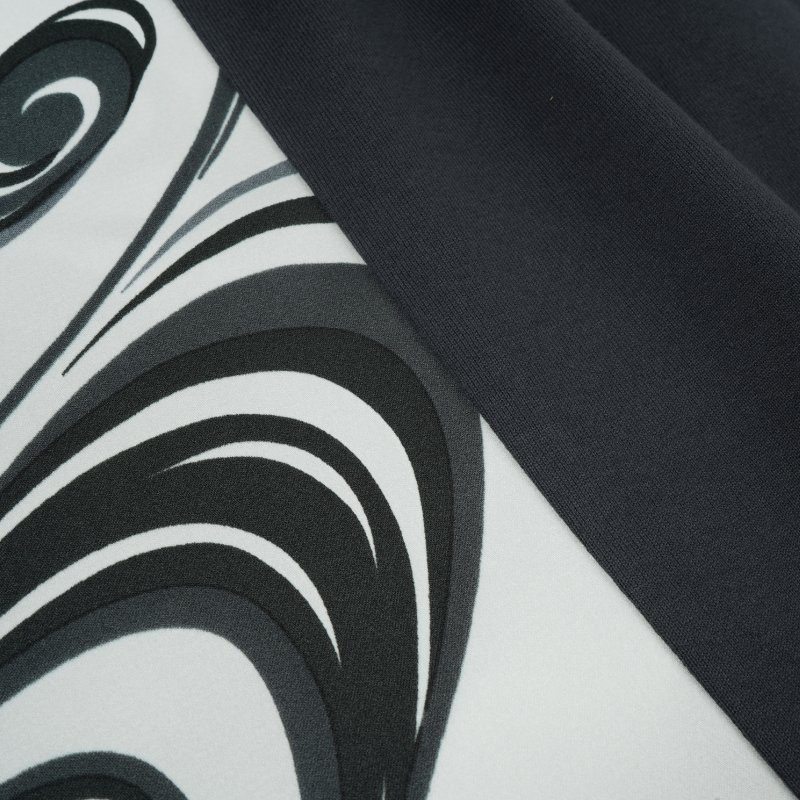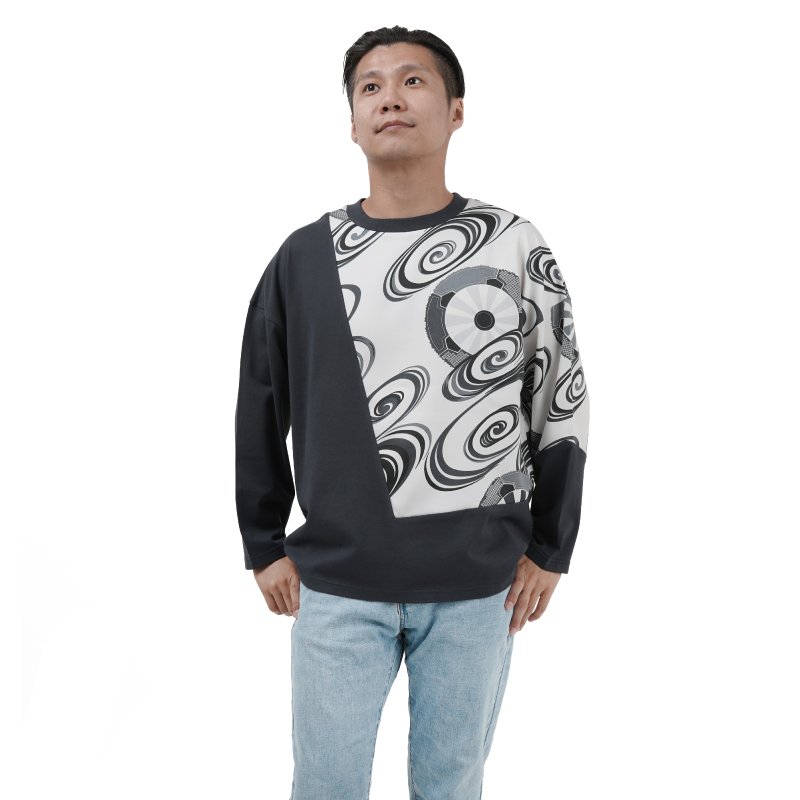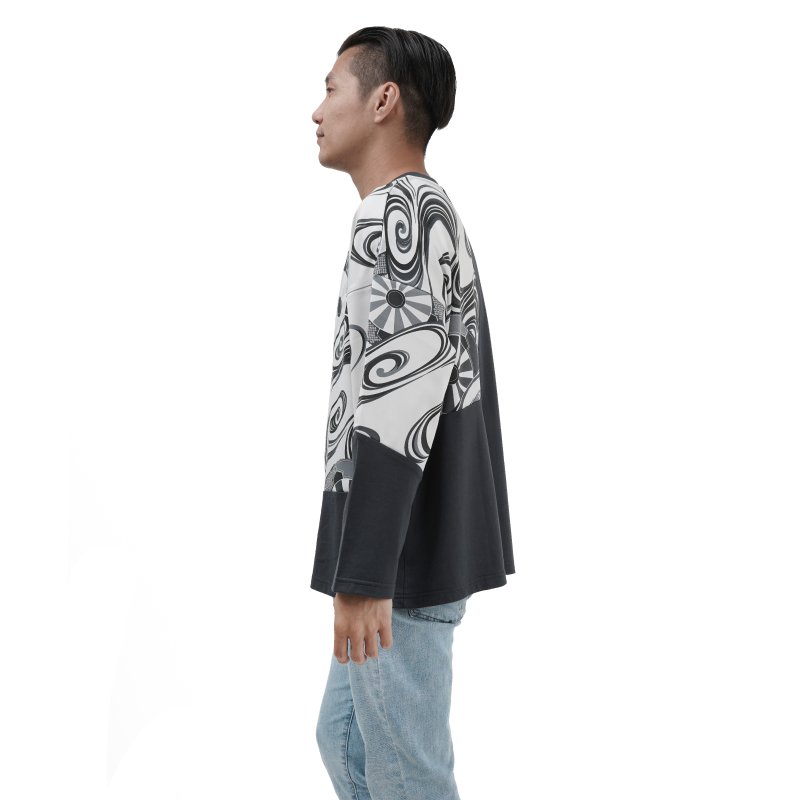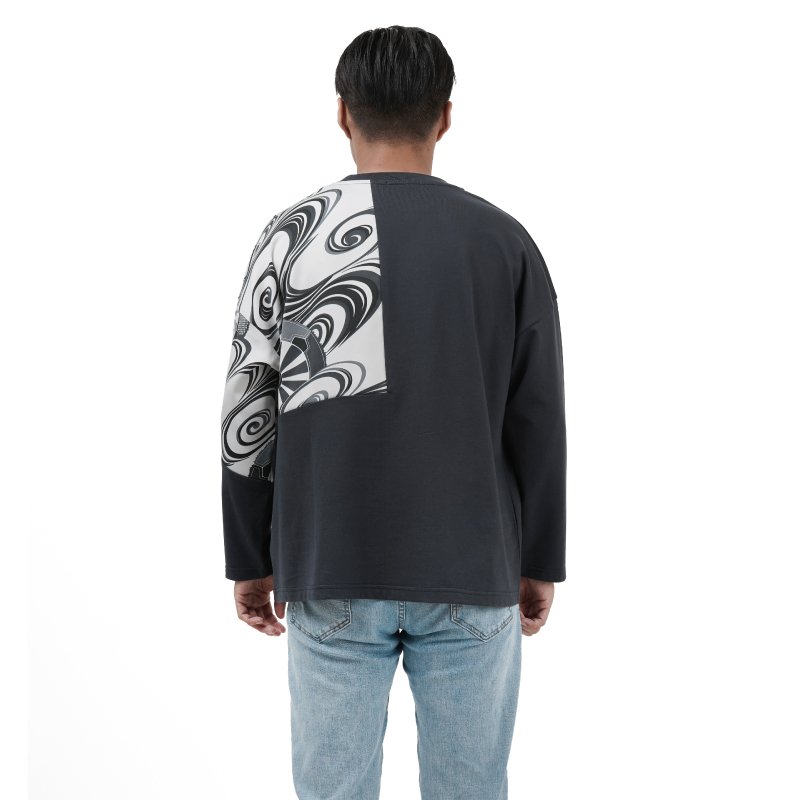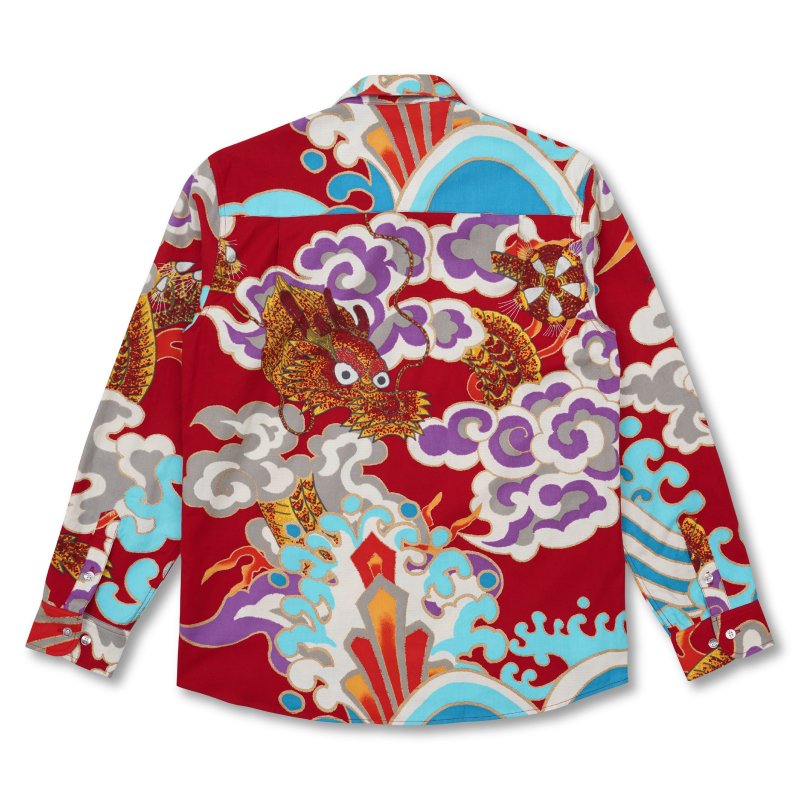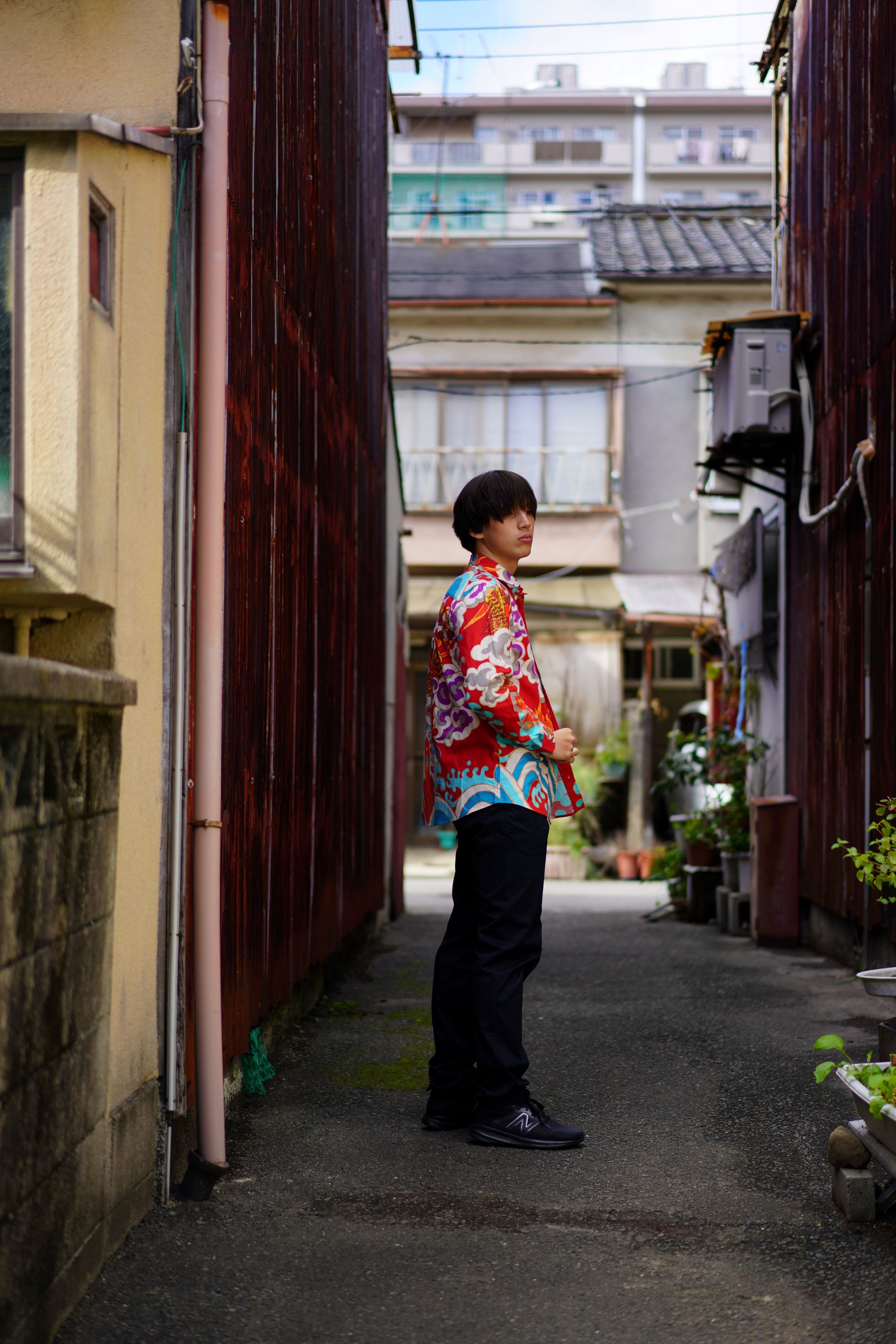YOHEN TENMOKU Men's long sleeve shirt
Japanese name/ 曜変天目 (Yohen Tenmoku)
-ABOUT-
Each is only 12 centimeters, less than 5 inches across, but inside is what seems to be “a galaxy aglow with stars”…
There are only three intact centuries-old Yohen Tenmoku tea bowls known to still exist in the world. The bowls are believed to have been produced at Jian-yao kiln in China’s Fujian province during the Song dynasty (1127-1279).
Although it wasn’t until the Muromachi era (1338-1573) when the custom of tea began to take root, they were brought back to Japan as a gift by a Japanese Zen monk who was receiving training at Tianmoku mountain, pronounced “Tenmoku” in Japanese, in China’s coastal Zhejiang province.
The Tenmoku type are black glazed bowls with the inside surface covered with iridescent patterns and lapis lazuli colored areas surrounded by lighter colors ranging from blue to bluish purple.
The meaning of “Yohen” describes the glistening pattern which transforms with light, and created while the bowls were being fired, the method in which this was done remains unknown, but it is thought to not be reproducible. The Yohen Tenmoku bowls are known as the highest grade of Tenmoku-ware, and considered to be the most precious pieces among black tea bowls produced at Jian kiln.
In recent years, fragments of Yohen Tenmoku were excavated in China from the site of the imperial guesthouse in Lin’an (Hangzhou) which used to be the southern capitol during the Song Dynasty; this discovery getting much attention world-wide.
At this time, one bowl is owned by Ryoko-in, a sub-temple of Daitokuji Temple in Kyoto, a second is owned by the Fujita Museum of Art in Osaka, and a third is owned by Seikado Bunko Art Museum in Tokyo; all three being designated by the Japanese government as Important National Treasures.
It is a great honor and brings us much joy for Pagong Kyoto to have been selected to replicate these ancient patterns of the Yohen Tenmoku by the Seikado Bunka Art Museum in Tokyo, to be admired and appreciated by art enthusiasts once more!
・98% Cotton 2% Polyurethane
・Made in Japan
・Dye Technique-Kyo-Yuzen, in Kyoto
・Urban style
・Hand-wash
・Currency : US Dollar (USD)
Japanese name/ 曜変天目 (Yohen Tenmoku)
-ABOUT-
Each is only 12 centimeters, less than 5 inches across, but inside is what seems to be “a galaxy aglow with stars”…
There are only three intact centuries-old Yohen Tenmoku tea bowls known to still exist in the world. The bowls are believed to have been produced at Jian-yao kiln in China’s Fujian province during the Song dynasty (1127-1279).
Although it wasn’t until the Muromachi era (1338-1573) when the custom of tea began to take root, they were brought back to Japan as a gift by a Japanese Zen monk who was receiving training at Tianmoku mountain, pronounced “Tenmoku” in Japanese, in China’s coastal Zhejiang province.
The Tenmoku type are black glazed bowls with the inside surface covered with iridescent patterns and lapis lazuli colored areas surrounded by lighter colors ranging from blue to bluish purple.
The meaning of “Yohen” describes the glistening pattern which transforms with light, and created while the bowls were being fired, the method in which this was done remains unknown, but it is thought to not be reproducible. The Yohen Tenmoku bowls are known as the highest grade of Tenmoku-ware, and considered to be the most precious pieces among black tea bowls produced at Jian kiln.
In recent years, fragments of Yohen Tenmoku were excavated in China from the site of the imperial guesthouse in Lin’an (Hangzhou) which used to be the southern capitol during the Song Dynasty; this discovery getting much attention world-wide.
At this time, one bowl is owned by Ryoko-in, a sub-temple of Daitokuji Temple in Kyoto, a second is owned by the Fujita Museum of Art in Osaka, and a third is owned by Seikado Bunko Art Museum in Tokyo; all three being designated by the Japanese government as Important National Treasures.
It is a great honor and brings us much joy for Pagong Kyoto to have been selected to replicate these ancient patterns of the Yohen Tenmoku by the Seikado Bunka Art Museum in Tokyo, to be admired and appreciated by art enthusiasts once more!
・98% Cotton 2% Polyurethane
・Made in Japan
・Dye Technique-Kyo-Yuzen, in Kyoto
・Urban style
・Hand-wash
・Currency : US Dollar (USD)

Japanese name/ 曜変天目 (Yohen Tenmoku)
-ABOUT-
Each is only 12 centimeters, less than 5 inches across, but inside is what seems to be “a galaxy aglow with stars”…
There are only three intact centuries-old Yohen Tenmoku tea bowls known to still exist in the world. The bowls are believed to have been produced at Jian-yao kiln in China’s Fujian province during the Song dynasty (1127-1279).
Although it wasn’t until the Muromachi era (1338-1573) when the custom of tea began to take root, they were brought back to Japan as a gift by a Japanese Zen monk who was receiving training at Tianmoku mountain, pronounced “Tenmoku” in Japanese, in China’s coastal Zhejiang province.
The Tenmoku type are black glazed bowls with the inside surface covered with iridescent patterns and lapis lazuli colored areas surrounded by lighter colors ranging from blue to bluish purple.
The meaning of “Yohen” describes the glistening pattern which transforms with light, and created while the bowls were being fired, the method in which this was done remains unknown, but it is thought to not be reproducible. The Yohen Tenmoku bowls are known as the highest grade of Tenmoku-ware, and considered to be the most precious pieces among black tea bowls produced at Jian kiln.
In recent years, fragments of Yohen Tenmoku were excavated in China from the site of the imperial guesthouse in Lin’an (Hangzhou) which used to be the southern capitol during the Song Dynasty; this discovery getting much attention world-wide.
At this time, one bowl is owned by Ryoko-in, a sub-temple of Daitokuji Temple in Kyoto, a second is owned by the Fujita Museum of Art in Osaka, and a third is owned by Seikado Bunko Art Museum in Tokyo; all three being designated by the Japanese government as Important National Treasures.
It is a great honor and brings us much joy for Pagong Kyoto to have been selected to replicate these ancient patterns of the Yohen Tenmoku by the Seikado Bunka Art Museum in Tokyo, to be admired and appreciated by art enthusiasts once more!
・98% Cotton 2% Polyurethane
・Made in Japan
・Dye Technique-Kyo-Yuzen, in Kyoto
・Urban style
・Hand-wash
・Currency : US Dollar (USD)
Men's Button-Down Shirts =SIZE (inches)=
| Chest | Shoulder Width |
Body Length |
Sleeve Length |
Sleeve Opening |
|
| M | 44.5 | 18.5 | 29 | 25 | 9.5 |
| L | 47 | 19.5 | 30 | 25 | 10 |
| LL | 49 | 20 | 31 | 25.5 | 11 |
If there is anything we can help you with, please feel free to let us know.
MAIL to : Pagong Kyoto
Contact Form >> www.pagongkyoto.com/contact



